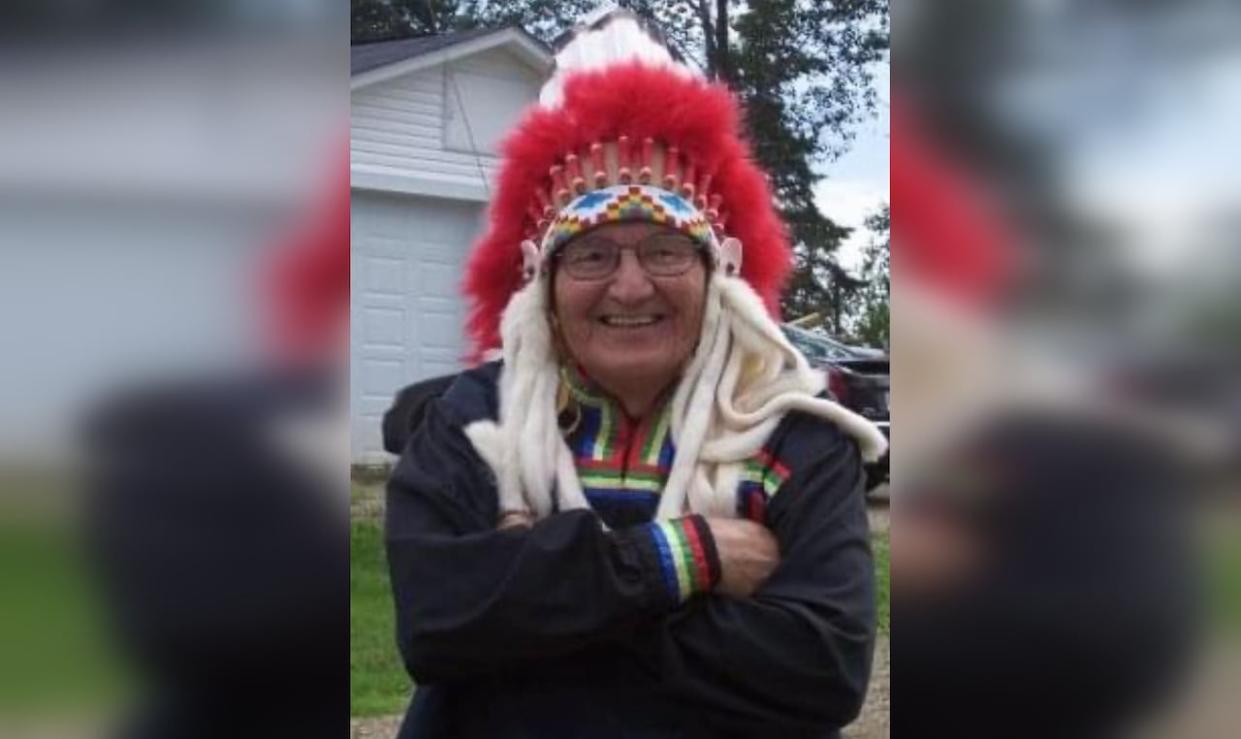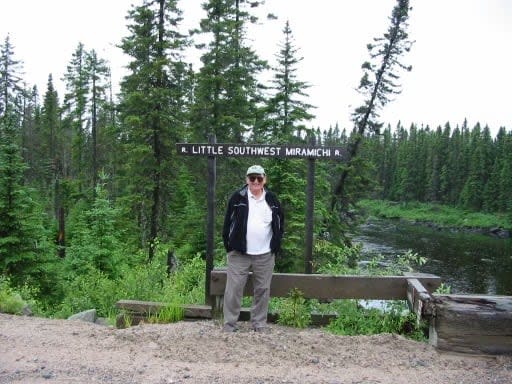Former Fort Folly First Nation chief remembered as environmental steward, avid fisher

The former chief of Fort Folly First Nation, who was known as an environmental activist, died late last month at the age of 84, leaving behind a lasting legacy.
Joseph Knockwood, from the First Nation community near Dorchester, in southeastern New Brunswick, was well-known for his efforts to have the causeway that linked Moncton and Riverview for decades removed, in order to reintroduce salmon into the Petitcodiac River.
Knockwood was chief of Fort Folly First Nation from 1997 to 2003 and again from 2005 to 2013, according to the community's website.
Tim Robinson, the director of the salmon recovery project at Fort Folly, remembers Knockwood's many achievements as well as his deep love of fishing.
"I had the privilege of being able to go fishing with Joe — he loved fishing salmon," said Robinson.
"At Red Bank, there's a pool, Joe's Pool, that's named in his honour and he would often go there and fish by himself at that pool. But I was able to go with him on some of the Crown reserve waters on the southwest Miramichi."

Tim Robinson says Joseph Knockwood loved to fish and was also an avid hunter. (Patricia Knockwood)
Robinson said Knockwood loved the outdoors, was an avid hunter and also enjoyed raising bird dogs.
He remembers the former chief as friendly, joyful and patient.
"When he met obstacles or resistance, he never got frustrated," said Robinson. "He would just continue to seek others that were friendly and wanted to work with him to benefit, you know, his goals in conservation."
Knockwood's obituary says he died on Dec. 27, surrounded by family.
Barber, hockey coach, traveller
The obituary says Knockwood joined the United States Army at 18, and following that, travelled the U.S. before moving to Moncton to become a barber, which eventually led to him opening Joe's Barbershop in Dorchester. He also coached minor hockey, including his sons' teams.
It goes on to say that Knockwood began researching land claims for the Union of New Brunswick Indians in the 1960s and throughout his life worked on many major claims, specifically for Metepenagiag First Nation on the Miramichi.
Environmental advocacy
Robinson highlighted Knockwood's vision for the future of the Petitcodiac River by working for the removal of the causeway.
Knockwood, working with the Peticodiac Riverkeepers, saw the causeway gates open in 2010, resulting in the river eventually returning to normal tidal flow, Robinson said.
And he brought young people and community members together to work with partners on restoring the salmon population in that river.
"So he sent the young people to work with the ecologists and the biologists from Parks Canada and Fisheries and Oceans to be trained up as river technicians," said Robinson.
"So once the gates were opened in 2010, Fort Folly was positioned to lead efforts to restore the endangered inner Bay of Fundy Atlantic salmon to the Petitcodiac.
"That's, you know, part of Joe's legacy. And that work continues today led by his niece, Chief Rebecca Knockwood."


